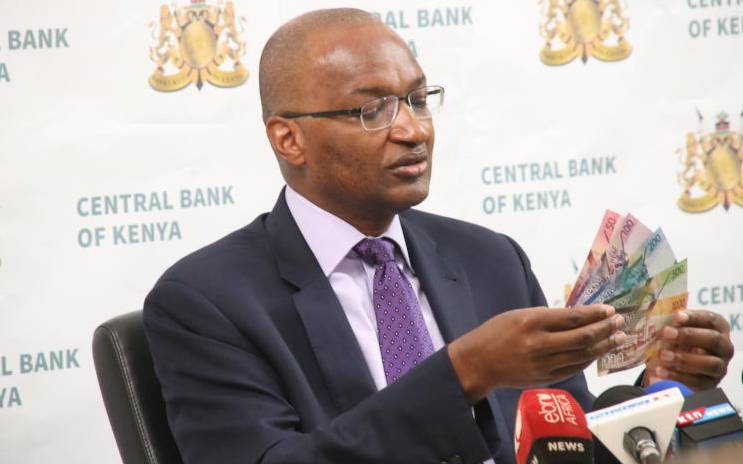
Central Bank of Kenya Governor Dr Patrick Njoroge briefs the media on the new currencies notes that will replace the old notes at the CBK offices October 1, 2019. [David Gichuru/Standard]
In exercise of power conferred on him by Article 231 of the Constitution, the Governor of Central Bank of Kenya (CBK) Patrick Njoroge rolled out a few days ago the new-generation currency notes and announced that Sh1,000 notes would be withdrawn and cease to be legal tender on October 1. He caught the leaders, at the Madaraka Day cerebrations in Narok, off-guard after the President invited him to the podium to make this announcement.